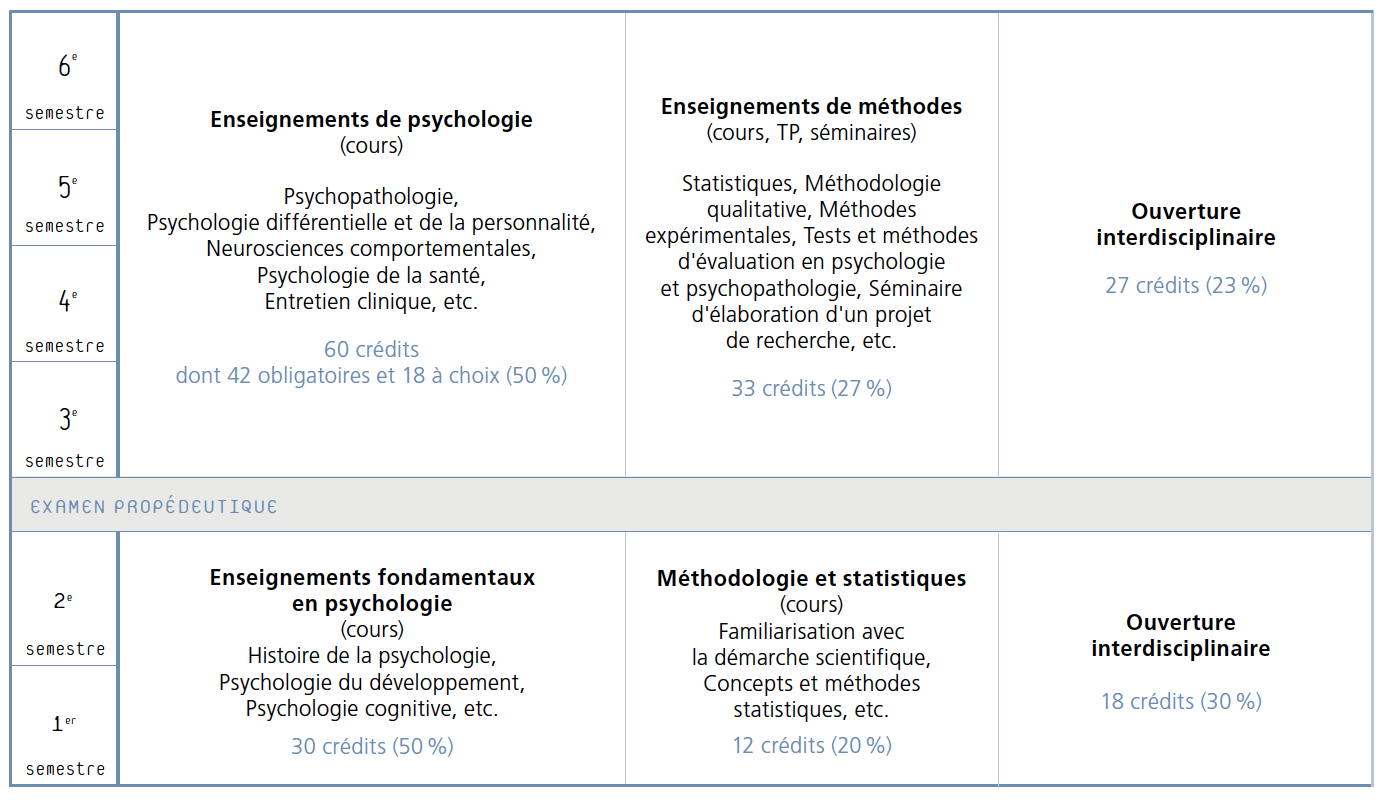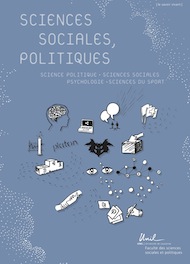The variety of research fields, which range from recording the activity of nerve cells to studying the effects of psychotherapy, makes it difficult to provide a simple definition of psychology. Its definition has, in fact, evolved over time as it has progressed. It has shifted from the “science of the life of the mind” over a century ago, to the “science of observable behaviour” from the 1920s to the 1960s, to become the science of behaviour and mental processes, whether these are individual or social, taking various determinants (biological, contextual, social, cultural, etc.) into account.
Psychology is therefore both a scientific discipline and an area of practice. Its various branches include, among others, those taught at the University of Lausanne:
- Psychology of the development of mental and behavioural processes from birth to death
- General psychology, which examines the major cognitive functions: memory, reasoning, learning, emotion and action
- Psychopathology and clinical psychology, which study mental disorders and their treatment
- Psychology of health, which looks, for example, at the psychological consequences of somatic illnesses
- Social psychology, which examines the interactions between individuals and institutions, and social representations
- Psychology of counselling in university and careers guidance
- Psychosocial gerontology, which studies the psychosocial processes associated with ageing
- Behavioural neurosciences, which combines functional units from general with specific physiological (nervous and somatic) modules
Practising as a psychologist requires a comprehensive study of psychology through university Bachelor’s and Master’s courses. In addition, many areas of psychology, for example psychotherapy, require several years’ postgraduate training after a Master’s course.

Organiser
Faculty of Social and Political Sciences
Degree Awarded
Bachelor of Science (BSc) in Psychology
ECTS Credits
180
Duration
6 semesters
Teaching Language
French
Enrolment Deadline
30 April. If you require a visa to study in Switzerland: 28 February.
Further information
Applications
Course description
Timetables
At UNIL, the following Master's programmes are open without further conditions to holders of the Bachelor of Science (BSc) in Psychology:
Practising as a psychologist presupposes a comprehensive study of psychology through university Bachelor’s and Master’s courses, followed in the majority of cases by several years’ continuing and/or advanced training.
New law on psychology
A Swiss Federal Act on the Psychological Professions (LPsy) came into force in 2013. The Act sets out clear, harmonised framework conditions for the practice of the psychological professions throughout Switzerland. It guarantees protection of the title of psychologist, since only providers of psychological services who hold a recognised qualification from a university, i.e. a Master of Psychology, will have the right to use the title ‘psychologist’. More information on the website of the Fédération suisse des psychologues (Swiss Federation of Psychologists) or the Association vaudoise des psychologues (Vaud Psychologists’ Association).
Career prospects depend partly on the choice of Master’s course.
Areas of activity
- Schools and public authorities, for example, schools and careers guidance and school psychology
- Health services, medical or social care institutions and hospitals
- Private practices: psychotherapy, psychological advice and support
- Businesses: for example, workplace psychology, staff selection, adult training
- Research
- Prevention
- Other: small community organisations, emergency services (for example, the police, fire brigade, health services, etc.), private service companies (for example, banks and consultancies) and higher secondary teaching
In figures
Every two years, the Swiss Federal Statistical Office (OFS) conducts a survey on graduate employment, one year after students have completed their course. View the results for Psychology graduates online:
- “Premier emploi après les études” (“First job after graduating”) survey on employment among Swiss university graduates
- De l’UNIL à la vie active (From UNIL to working life) – results of the survey for UNIL graduates specifically
Examples of positions
- Psychologist and sexologist
- Psychology PhD student, Haute école de santé du canton de Vaud (Vaud Canton School of Health – HESAV) and Institut romand de santé au travail (Institute of Workplace Health for French-speaking Switzerland – IST)
- Assistant psychologist in paediatric psychology, Nant Foundation
- Careers guidance psychologist, Corref

